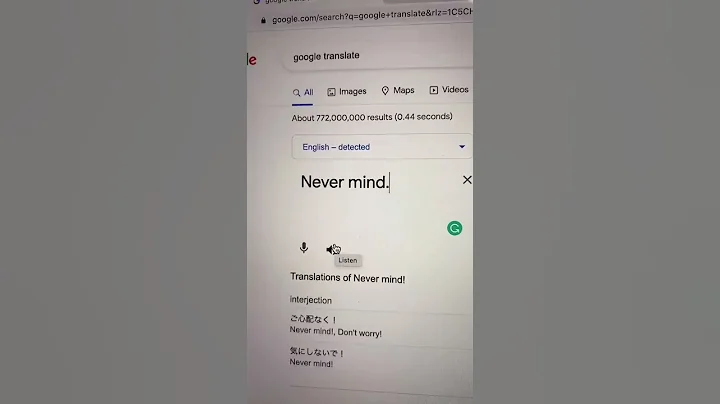First of all, we must learn Japanese well, mainly Japanese syllables in a broad sense (including unvoiced, voiced and semi-voiced sounds, oblique sounds and their variants, accelerated sounds, dialed sounds and long sounds). It's not easy to get familiar with it. We need to deepen our memory through various pronunciation training and similar pseudonym discrimination. Otherwise, fluency will be affected when learning words and conversations later.
This familiarization process usually takes about 20 hours. Some students think that pronunciation is very simple, and they think it will be completed in a short time (in fact, they do not read it correctly and do not remember the exact writing method), so they rush to the next stage of learning and have problems speaking in the later stages. .
There are two main solutions at this stage.
1. Watch various Japanese pronunciation training on youtube (don’t ask me what I think in China, please solve it yourself), then imitate and follow. For example, I practice Kitahara Momaki’s “five tones” and tongue twisters every day.
2. Record your own voice and compare it with the Japanese pronunciation from textbooks or websites to find the nuances and make further corrections to improve the pronunciation.
Pronunciation is a big trap in Japanese learning, especially self-study. It should not be ignored and there are no shortcuts.
The point is that this is just a small step in pronunciation practice. After that, there will be tones, spoken pronunciations, intonations, etc. for nouns, adjectives, verbs, onomatopoeia, etc., but you cannot learn them.
Students often complain that after the first level, they still can't speak. However, I do not take the Level 1 English speaking test (or a test that does not emphasize spoken English). I don’t know if I just didn’t practice in the first place. Speaking English doesn't happen naturally. Sooner or later you have to pay it back. How well you speak English has nothing to do with failing the first level of the exam. Students who value spoken English may become proficient in N3. It's only a matter of time before further improvements are made, while other students rush to test various words and grammar. , if your spoken English on the final level test is not good, of course you have to practice again. No one is born speaking English.

There are two main types of word memory:
1. Context-sensitive. For example, rudeness, primordial, and どうぞよろしく''`, not only remember the words in the sentence, but also remember the usage of the words in the sentence, that is, the usage. This is the recitation of sentences and texts.
2. Pronunciation association. Part pronunciation correlations and training reading correlations. For example, Audio Reading Association, Students, Electricians, Medical Researchers, University Students, Club Members, Bankers, China and Korea, Teachers Classroom, Classroom Meeting Room, Meeting Room Club Members, Telephone and Telephone etc. Separation Association of Training and Reading: Both かさ and かばん have a pen name KA, which requires a certain amount of imagination and an umbrella and a tote bag to work, similar to Fuyu (Winter) and Snow (ゆき).
If you try to memorize according to the above two methods, there are still some words that you will not remember. How to associate the memory, then circle it, and then check the few words in the memory that you cannot remember the next day. and the third day. If you live it, you will remember it after a few days, or you will learn new words and similar words together.

Learn a lot of Japanese skills
Watch more TV
Japanese TV is different from Taiwan. It has no subtitles. If you want to understand what people on TV are saying, celebrities are acting and singing, you really need to super listen and understand! However, it is undoubtedly a good test for those who want to learn Japanese. You may "hear nothing" when you first start, but you can copy the words or words you don't understand on paper before you go. Look it up in a dictionary or ask your teacher. It will be better if you listen more and correct your pronunciation.
asks if you don't understand
Chinese people often have a problem, that is, in public places, they don't understand and dare not raise their hands to ask questions. If you don't understand, you won't understand. You must learn in the spirit of discovery only. Otherwise, it will be a waste of the money you paid.In addition, since some courses are interrelated, once a small place cannot be understood, how can the next course be passed? If you try to ask a question but in the end your face is still too thin and your words are stuck, you can ask the teacher alone at the end! Otherwise, just ask your superior or roommate.
Complete Tools
It is said that "workers who want to do well must first improve their own tools." To learn a language, you must carry a dictionary with you. Whenever you don't understand something, you should quickly turn it over so you can improve. As the saying goes: "The people" don't have to look hard to see if their dictionary is dirty. The more frequently he reads, it means he is a tireless person. Plus, you can memorize vocabulary while you're on the tram, or listen to instructional tapes, so you can get twice the results with half the effort!
Fall in love often
The power of love is so huge! After falling in love with a Japanese person, in order to communicate with each other and express your feelings as quickly as possible, you must talk in Japanese every day. It is best that this person knows nothing about Chinese, so in addition to class, whether it is a date or a phone call, whether it is a love talk or a quarrel after class, you must use Japanese! How come your Japanese can't improve so quickly for so long?
Stay away from fellow countrymen
Do not stick to friends or fellow countrymen, as long as you are with your fellow countrymen, you can rely on them. After all, speaking Mandarin is certainly much easier than speaking Japanese. When you study in Japan, you all speak Chinese, so why waste your money going to Japan. What? Forget it if you study in Taiwan! You should always be in an environment where only Japanese or foreigners are allowed to speak Chinese. Even if you can't tell how to express it, you still have to speak Japanese without holding back, so you just force yourself to think of various ways to express the essence of what you have learned in the shortest possible time. , in order to achieve the best learning effect.

Do your best
It's not gossip everywhere but the Japanese! You can speak Japanese whenever you get the chance. Whether you're buying something or asking for directions, you can practice "field practice" with Japanese people as much as possible. As long as I have time, I will catch the administrator uncle and chat with him. Or ask questions, you know? This month is much more effective than self-study! My Japanese went from a little understanding to fully expressing what I meant, and I became fluent in the language, proving that even small talk, slapstick, and nonsense is okay! If you find a target, don't waste it on him. Whether it's an Obasan selling goods, a cashier at the supermarket, a staff member at the station, or a homeless person sleeping in the park, you can be a Japanese teacher! The more you speak, the more proficient your Japanese conversations and reactions will become!
I have heard of many experiences of older people learning Japanese. Some people go to the park to chat with their children every day, some force themselves to listen to the news, some rent a lot of video tapes to take back to the dormitory, or add Japanese text to all reading materials, etc. ! No matter what weird tricks you do, as long as you don't break the law, anything that makes the Japanese better is worth the effort.
For more introductory Japanese learning courses, please follow the public account - and Tao Japanese





















